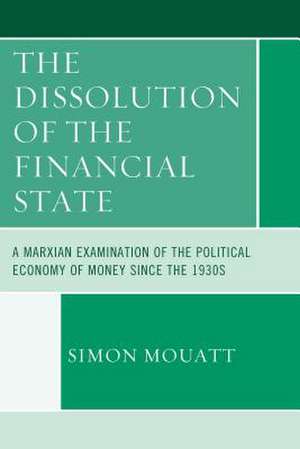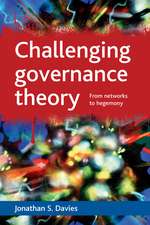The Dissolution of the Financial State: Heterodox Studies in the Critique of Political Economy
Autor Simon Mouatten Limba Engleză Hardback – 5 aug 2015
Preț: 709.49 lei
Preț vechi: 971.89 lei
-27% Nou
Puncte Express: 1064
Preț estimativ în valută:
135.80€ • 141.23$ • 113.80£
135.80€ • 141.23$ • 113.80£
Carte tipărită la comandă
Livrare economică 13-27 martie
Preluare comenzi: 021 569.72.76
Specificații
ISBN-13: 9780739190371
ISBN-10: 0739190377
Pagini: 276
Ilustrații: 13 black & white illustrations, 13 tables, 22 graphs
Dimensiuni: 155 x 231 x 25 mm
Greutate: 0.52 kg
Editura: Rowman & Littlefield
Seria Heterodox Studies in the Critique of Political Economy
ISBN-10: 0739190377
Pagini: 276
Ilustrații: 13 black & white illustrations, 13 tables, 22 graphs
Dimensiuni: 155 x 231 x 25 mm
Greutate: 0.52 kg
Editura: Rowman & Littlefield
Seria Heterodox Studies in the Critique of Political Economy
Notă biografică
Descriere
This book considers credit systems in the era of financialization and the erosion of state sovereignty in financial matters. Applying Marx's political economy and Post-Keynesian endogenous money theory to case studies from the UK and Germany, it argues that the best explanation for these phenomena can be found in the systemic drivers of capitalism.


















